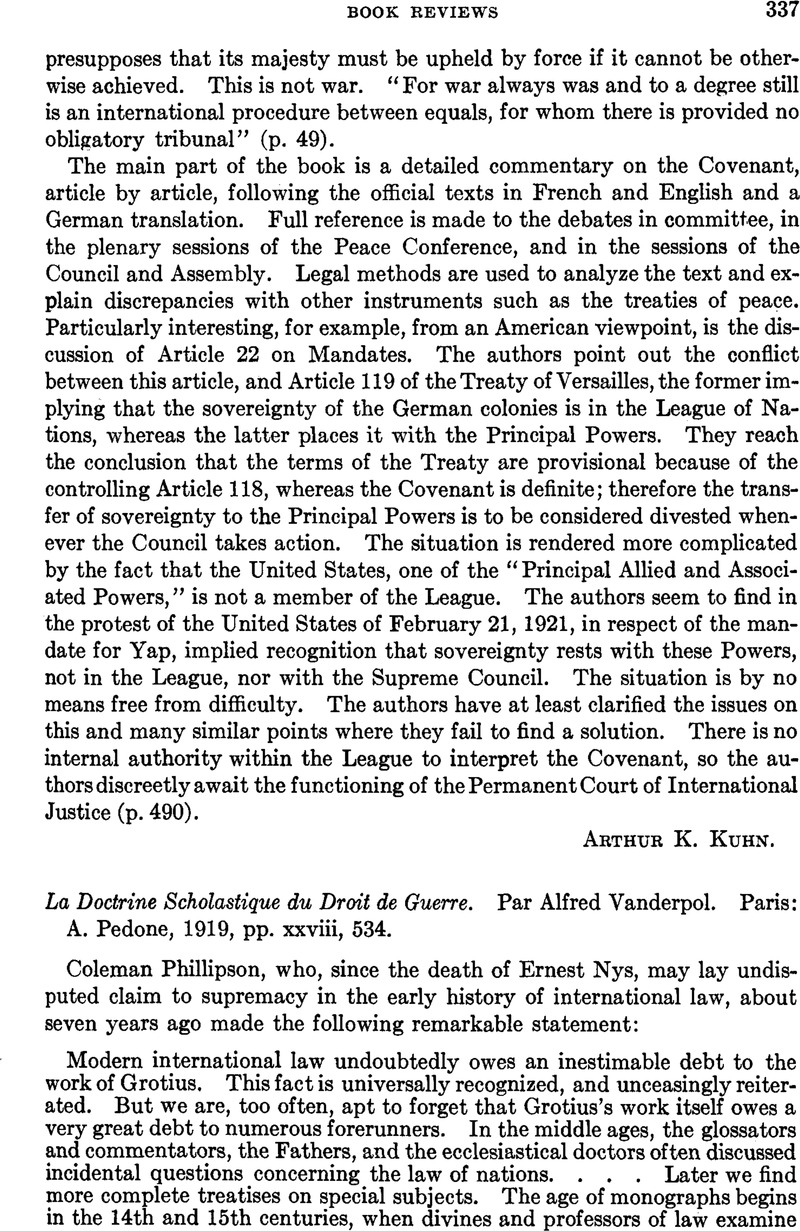No CrossRef data available.
Article contents
La Doctrine Scholastique du Droit de Guerre. Par Alfred Vanderpol. Paris: A. Pedone, 1919, pp.xxviii, 534.
Published online by Cambridge University Press: 04 May 2017
Abstract

- Type
- Book Reviews and Notes
- Information
- Copyright
- Copyright © American Society of International Law 1922
References
1 Phillipson, Coleman,Frandscus a Victoria, in the Journal of the Society of Comparative Legislationnew series, ,p.175. xv 1916 Google Scholar
2 Lorimer, James,The Institutes of the Law of Nationsp.71. i, 1883 London Google Scholar
3 It might be worth while in passing to mention the fact that the works of Ayala, Gentili, Victoria and Legnano have appeared in the “ Classics of International Law” mentioned above, while the works of Suarez and Belli are in preparation.
4 On page 433 a line has been omitted without any indication; on page 432, section 418, ten lines have been omitted without any indication. Notes 4 and 5 are jumbled on page 436, as are the notes on pages 451-462. On page 322 it is stated that Victoria received the licentiate in 1522; Nys gives the date as March 24,1521. Although an asterisk is supposed to be used to indicate notes of the author, frequent omissions of it occur. On page 442 the excerpt cited from St. Jerome is really from St. Gregory, and on page 472 the quotation from Ovid is really from Plautus. In section 20 on page 44 quotations from Suarez do not agree with the same passages in the back part of the book from which they purport to be taken and two lines of the author's own observations have been inserted in the quotation with nothing to indicate they are not part thereof




